Dr. Muzaffar Hussain Nadvi An Esteemed Arabic and Islamic Scholar from Kashmir
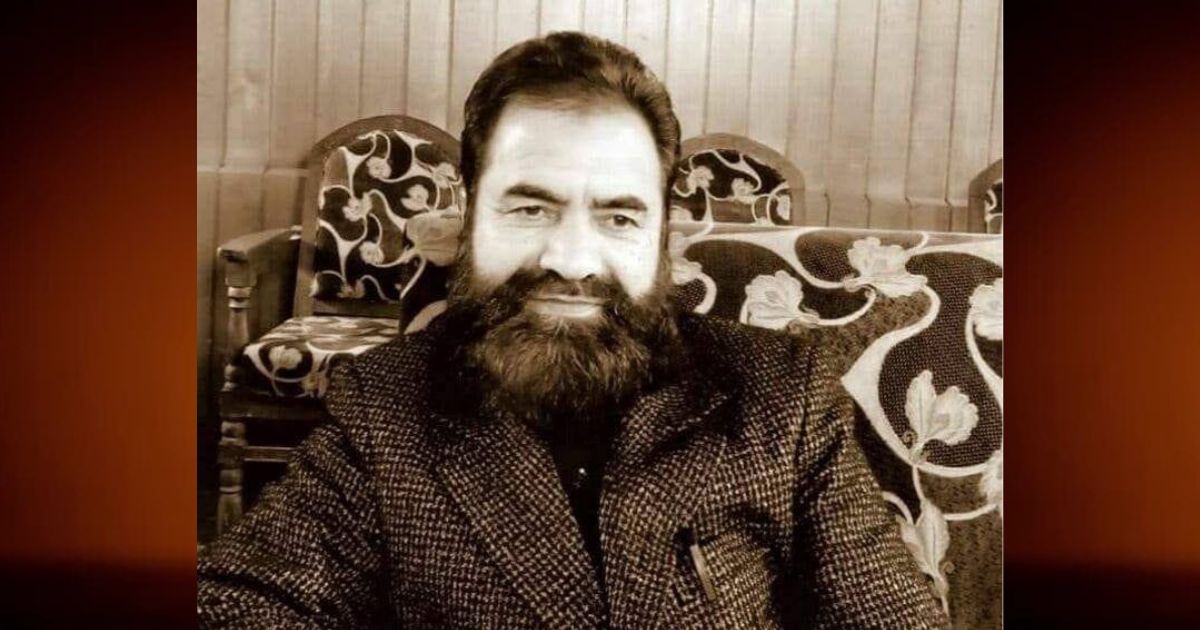
Dr. Muzaffar Hussain Nadvi, a renowned scholar from Bandipora, Kashmir, has left an indelible mark on Arabic and Islamic literature. His magnum opus, Khulasat-ul-Tafseer, a simplified Arabic exegesis of the Quran, epitomises his dedication to making Islamic knowledge accessible to a broader audience. Over decades of scholarly pursuits, Dr. Nadvi has contributed significantly to the fields of Arabic language, Islamic theology, and Kashmiri cultural heritage. This article delves into his monumental contributions under several thematic headings.
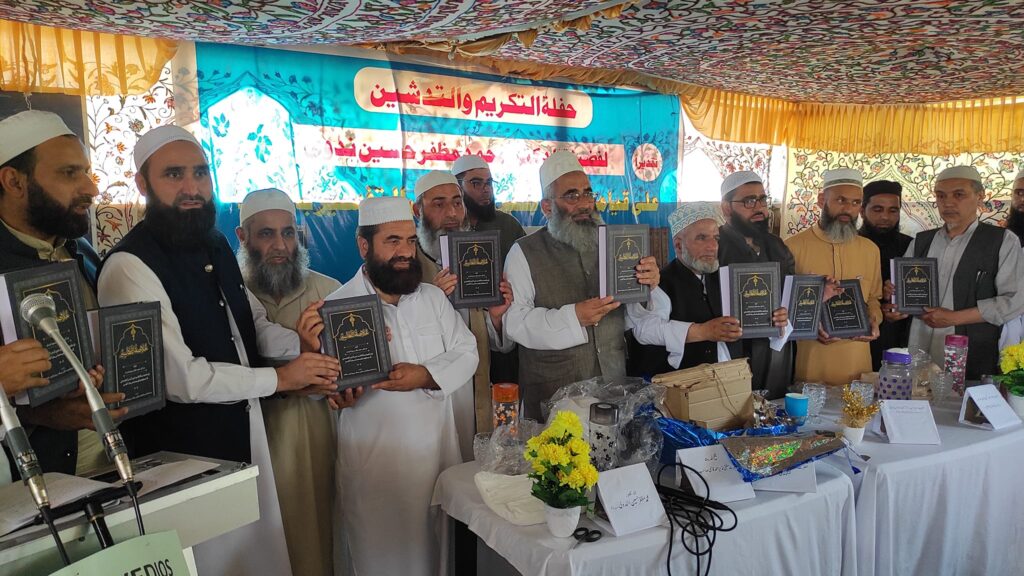
1. Early Life and Educational Journey
Dr. Muzaffar Hussain Nadvi was born in the serene district of Bandipora, Kashmir. His early passion for knowledge led him to pursue advanced studies in Islamic theology and Arabic literature, culminating in a PhD from the University of Kashmir.
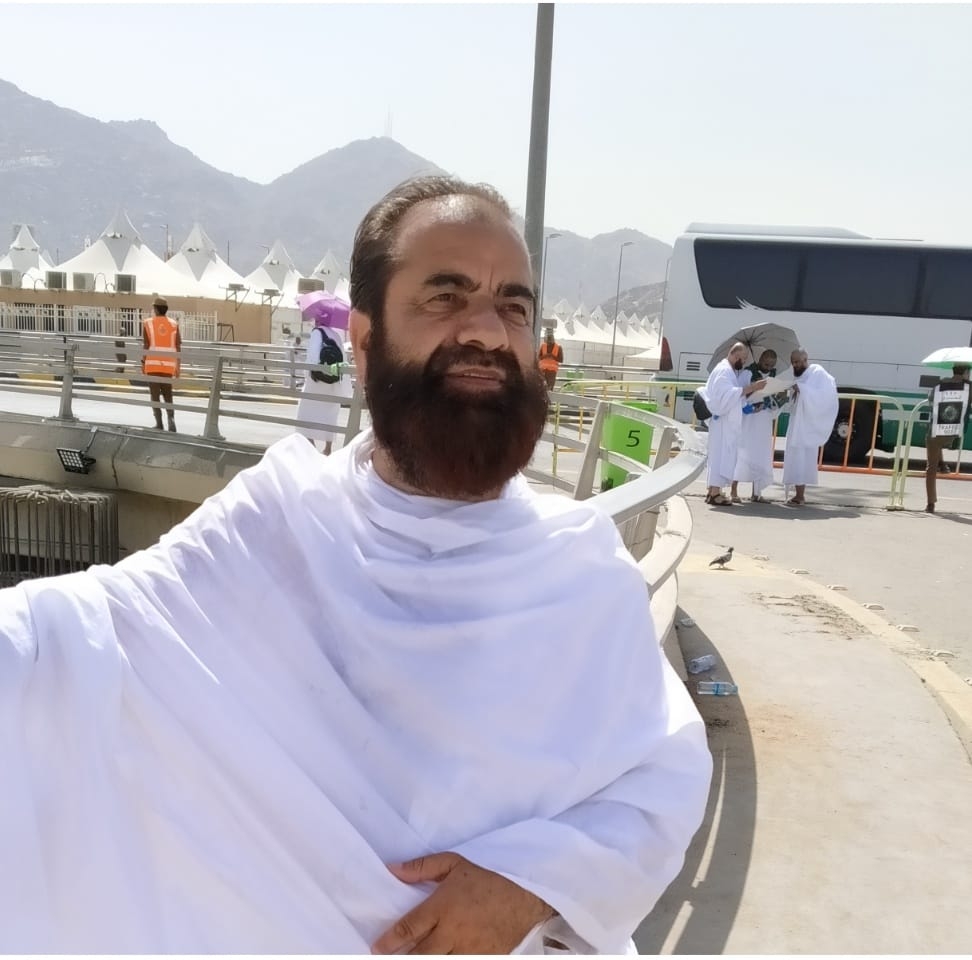
2. Inspiration Behind Scholarly Pursuits
While studying at Nadwatul Ulama, Lucknow, Dr. Nadvi was deeply influenced by a remark from a teacher, suggesting a decline in Kashmir’s scholarly contributions. This spurred his resolve to research and revive Kashmir’s intellectual legacy.
3. Doctoral Dissertation: A Foundation for Future Work
His doctoral research focused on the contributions of Kashmiris to Arabic language and literature between 900 and 1300 AH. This comprehensive study became the cornerstone for his future works.
4. Introduction to Khulasat-ul-Tafseer
Khulasat-ul-Tafseer is Dr. Nadvi’s masterpiece, a simplified Arabic exegesis of the Quran. This work, a product of 14 years of dedication, aims to make Quranic interpretation accessible to non-Arabic speakers.
5. Simplifying Tafseer for Broader Understanding
Unlike classical tafseers, which often use complex linguistic styles, Khulasat-ul-Tafseer employs easy Arabic, enabling even novice readers to understand Quranic verses and their meanings.
6. Influence of Kashmiri Scholars on Khulasat-ul-Tafseer
Dr. Nadvi drew inspiration from the works of Kashmiri scholars like Molana Mohideen Naqsbandi, whose Zurda-dut-Tafseer laid the groundwork for his simplified approach.
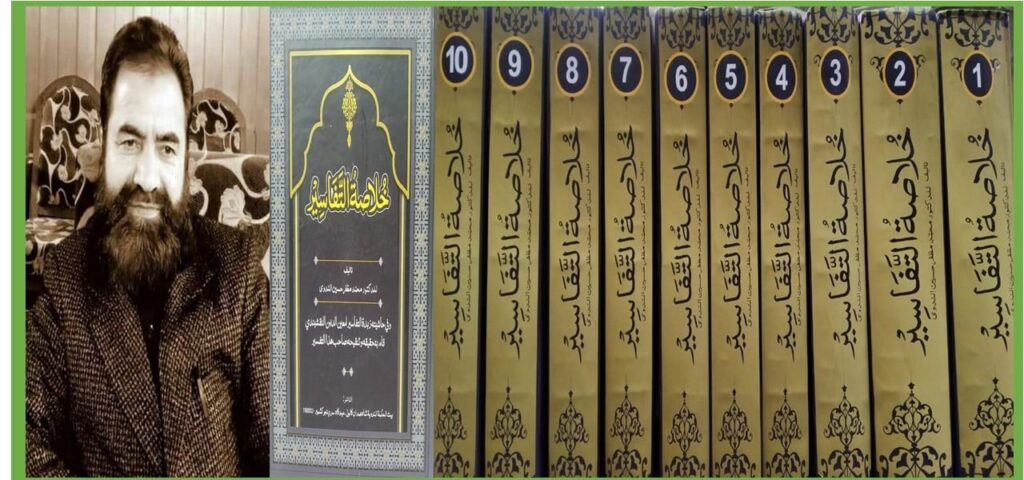
7. A Blend of Classical and Contemporary Interpretations
In Khulasat-ul-Tafseer, Dr. Nadvi amalgamates insights from 30 classical tafseer books, offering a holistic view of Quranic interpretation.
8. Promoting Accessibility Through Language
By translating Quranic interpretations into easy Arabic, Dr. Nadvi made Islamic knowledge more approachable for learners and scholars alike.
9. 14 Years of Scholarly Dedication
The journey of creating Khulasat-ul-Tafseer was arduous, involving meticulous research, editing, and verification over 14 years.
10. Support from UGC for Scholarly Endeavors
Dr. Nadvi’s work was bolstered by two UGC-funded projects, which facilitated the research and compilation of Khulasat-ul-Tafseer.
11. Reviving Kashmiri Intellectual Legacy
Through his writings, Dr. Nadvi has spotlighted Kashmir’s rich tradition of scholarship in Arabic and Islamic studies, bridging the past with the present.
12. Compilation of Manuscripts and Rare Works
Dr. Nadvi’s meticulous efforts in gathering and preserving Arabic manuscripts have provided invaluable resources for future scholars.
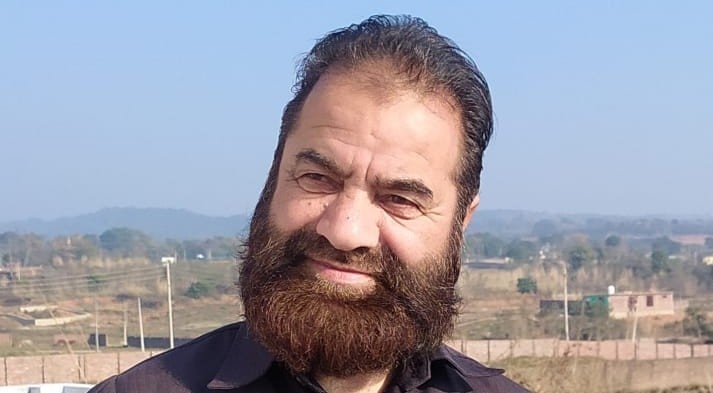
13. Collaboration with Libraries and Institutions
His research often involved collaboration with prestigious institutions like Khuda Bhaksh Library, enriching his understanding of classical tafseers.
14. Highlighting Contributions of Kashmiri Scholars
In his works, Dr. Nadvi has chronicled the lives and contributions of Kashmiri luminaries, such as Shaykh Yaqub Sarfi and Sayyid Ali Hamadani.
15. Arabic Poetry and Literature
Apart from tafseer, Dr. Nadvi has explored Arabic poetry, showcasing the linguistic prowess of Kashmiri scholars in this genre.
16. Academic Relations Between Kashmir and Delhi
Dr. Nadvi has highlighted the historical academic exchanges between Kashmiri and Delhi-based scholars, emphasizing mutual enrichment.
17. Role of Sufi Saints in Islamic Scholarship
He extensively documented the contributions of Sufi saints like Sayyid Ali Hamadani, who played a pivotal role in spreading Islam in Kashmir.
18. Importance of Sustainable Islamic Education
Dr. Nadvi advocates for sustainable educational models that combine traditional Islamic teachings with contemporary needs.
19. Editing and Annotating Classical Texts
His editorial work on classical Arabic texts ensures their relevance and accuracy for modern readers.
20. Modern Relevance of Khulasat-ul-Tafseer
In today’s context, Khulasat-ul-Tafseer serves as a vital tool for understanding the Quran in an increasingly globalized world.
21. Inspiring Future Generations
Dr. Nadvi’s dedication inspires young scholars to explore Arabic and Islamic studies, fostering a new wave of intellectual growth.
22. Challenges Faced During Research
His journey was fraught with challenges, from limited access to manuscripts to the reluctance of private collectors to share resources.
23. Recognition and Appreciation
Dr. Nadvi’s works have been widely acclaimed, earning praise from scholars and institutions globally.
24. Impact on Arabic Language Studies in Kashmir
His contributions have sparked renewed interest in Arabic studies among students and academics in Kashmir.
25. Preserving Kashmir’s Cultural and Scholarly Heritage
Through his writings, Dr. Nadvi has played a crucial role in preserving and celebrating Kashmir’s rich cultural and intellectual heritage.
26. Promoting Interdisciplinary Approaches
Dr. Nadvi’s works bridge theology, literature, and history, promoting an interdisciplinary approach to Islamic studies.
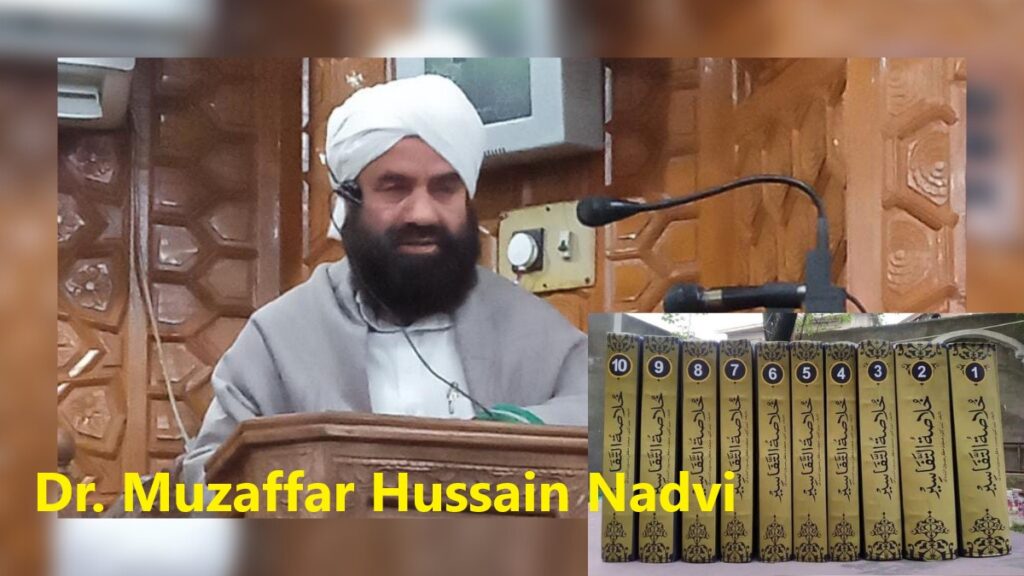
27. Encouraging Lifelong Learning
Dr. Nadvi’s belief in lifelong learning underscores the importance of passion and dedication in scholarly pursuits.
28. Expanding the Horizons of Islamic Scholarship
With his innovative approach, Dr. Nadvi has expanded the boundaries of traditional Islamic scholarship.
29. Vision for the Future
Dr. Nadvi envisions a world where Islamic knowledge is accessible to all, fostering understanding and harmony.
Conclusion
Dr. Muzaffar Hussain Nadvi’s contributions to Arabic and Islamic literature are unparalleled. His magnum opus, Khulasat-ul-Tafseer, exemplifies his dedication to making Islamic teachings accessible to all. By bridging the gaps between tradition and modernity, he has revitalized the rich legacy of Kashmiri scholarship. Dr. Nadvi’s life and works will continue to inspire generations, illuminating the path of knowledge and understanding.
You Might Also Like:
Isra Amin: A Young Voice of Empowerment at the Kashmir Literature Festival





